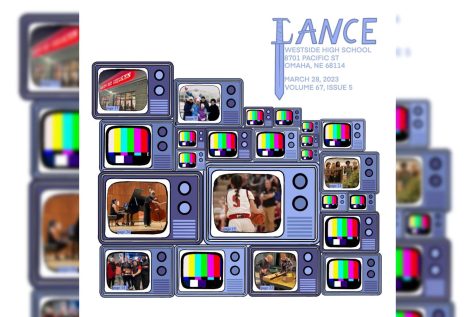Not Final Girls
How horror can foster feminist storylines
It’s easy to find examples of brutality against women in horror. Unnecessary depictions of abuse are all too common in the genre. Plot points like assault or abuse are used as methods to move the story along rather than meaningful events in these characters’ lives. This brutality isn’t seen as excessively shocking, either. For example, “American Psycho,” which was rife with that brutality, is viewed as a must-see for horror fans. However, a movie like “Teeth” (in which a woman discovers teeth in a specific area of her anatomy) is viewed as something that should only be seen by those who can really stomach extreme violence and filth. This is a double standard in a genre that holds so many opportunities for meaningful storytelling through a feminist lens.
A classic example of this is “Rosemary’s Baby” by Ira Levin. Despite being a man in the 1960s, Levin was an incredible feminist writer. “Rosemary’s Baby” is about a young woman unknowingly impregnated with the spawn of Satan. The book perfectly exemplifies the complacency and silence expected of women, even when they’re faced with circumstances that so clearly makes them uncomfortable. At the beginning of the book, after Rosemary is impregnated by Satan while drugged, her husband leads her to believe that he had sex with her while she was asleep. She’s devastated, of course, but she convinces herself that she’s overreacting, as everyone around her tells her it’s nothing serious. What’s so hard-hitting about all of the burdens that come with Rosemary’s pregnancy is that she isn’t ignorant. She knows what’s happening in her body, and she knows that it’s not right. The true horror is that nobody believes her. She has to stew in her discomfort and convince herself that something’s wrong with her. Because of that, one of the most personal decisions of her life is dictated by other people. The story isn’t horrifying because of some fear of the devil, it’s horrifying because losing control of your body and your choices is a horror that women face daily.
The idea that a woman’s life is dominated by those around her is common. The 1997 Satoshi Kon film “Perfect Blue” grapples with identity and societal expectations of a woman under the spotlight. It’s unfortunate, because the film was highly advertised as a thriller about body doubles, which is only part of it. It was actually a very nuanced story of how the public eye and simplistic perspectives of celebrities can ruin their lives and how young women in the industry can be manipulated. It shows a celebrity named Mima, previously involved in a pop group, who decides to move into acting. What follows is a haunting portrayal of this woman losing her mind after being viciously stalked and forced to re-examine her own identity. This story couldn’t have been told through any genre other than horror. To survive under the scrutiny of the public eye, a woman must fall easily under one category. Trying to exist outside of that one identity causes hate from outsiders and conflict on the inside. Mima was torn apart, both by herself and critics, after being pressured to play promiscuous roles. Audiences hated it because they preferred her demure innocence as a singer, and she hated it because it made her uncomfortable. In the eyes of the public, their comfort in how she acted was much more important than her own. It’s very common for women to put aside their own suffering for the purpose of pleasing others, and “Perfect Blue” shows how that repression can ruin a person.
Judgment for simply trying to exist is a common, exhausting ordeal for women, and there’s an influx of self-loathing that comes with that judgment. That kind of paranoia and self-loathing that girls face is covered in the 1976 film “Carrie,” in which a teenage girl, after being mercilessly bullied for being scared of her own period, discovers that she has psychic powers. The bullying reaches its climax when other students rig the votes for prom queen, allowing her to win. When she goes on stage to accept the crown, a bucket of pig’s blood is dumped on her in front of the entire school. There’s such a painfully stressful quality to this scene. Among several women, especially teenagers, there’s a particular dread that comes with the idea that you may be doing something wrong. There is a fear that the way you choose to exist is somehow wrong, and at any point, somebody’s going to catch you slip up. This scene portrays that nightmare. None of her classmates really find what happens to Carrie funny, but the way Carrie sees it, she’s become precisely the laughingstock she always thought she was. She’s viewing the world through a twisted kaleidoscope of mockery. It’s horrifying and uncomfortable because it displays a common fear: being punished and ridiculed for the act of living.
Horror is an excellent medium through which to portray women’s experiences. When done sloppily, horror involving women’s stories ends up as an excuse to show unfiltered brutality against women through a male lens. When done well, the audience can empathize with the women onscreen and realize how scary these common experiences can be. “Rosemary’s Baby” is about choice. “Perfect Blue” is about identity. “Carrie” is about maturity. These are difficult themes for women to grapple with, and how imposing they are can only be understood when shown through a genre as threatening as horror.
Your donation will support the student journalists of Omaha Westside High School. Your contribution will allow us to purchase equipment and cover our annual website hosting costs.

Hi, my name is Jane Knudsen! I am the A&E editor for Lance this year. I am currently a senior and this is my second year on Lance. If you have any...















